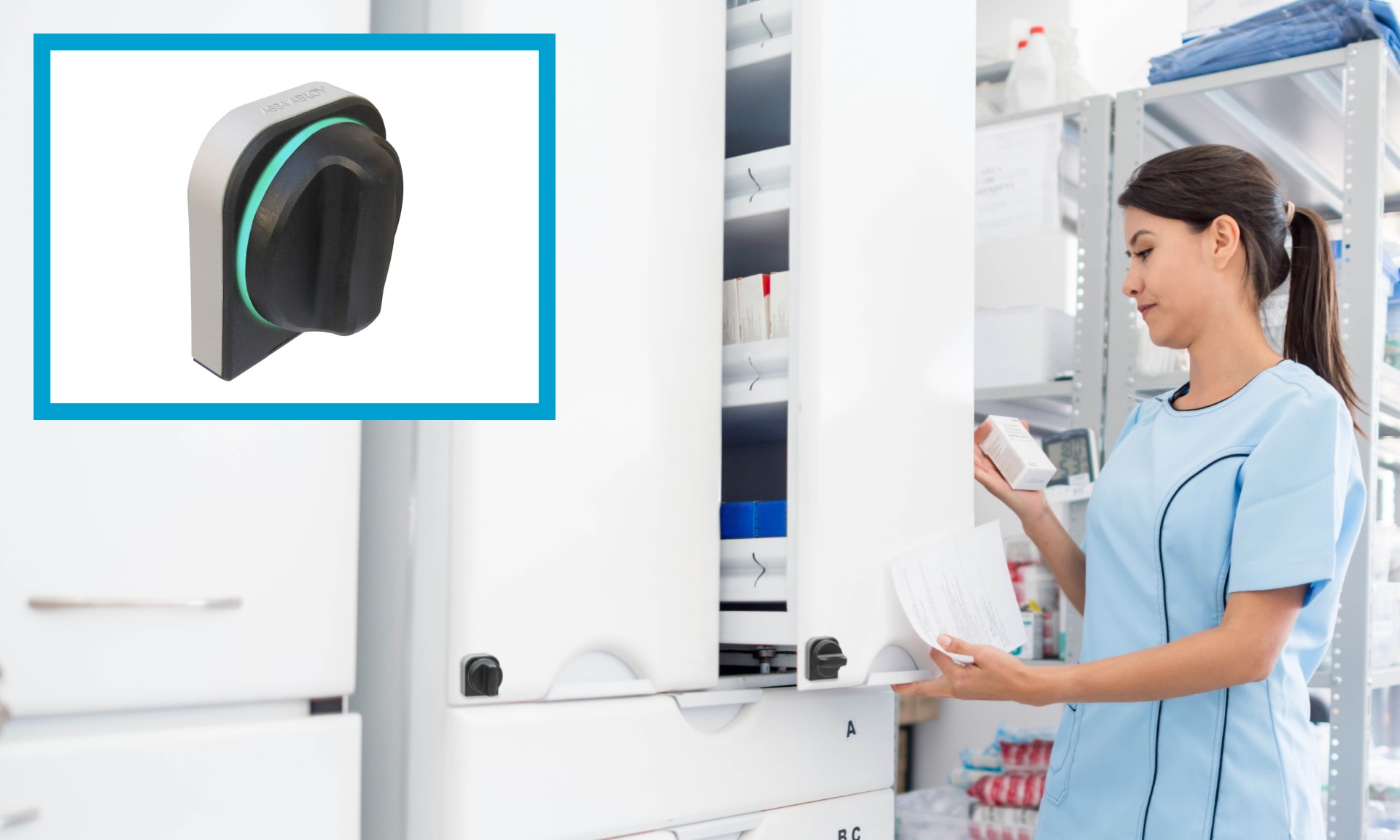In hospitals, health centres, clinics and other medical buildings, the small spaces often need as much care as large areas. Yet while traditional mechanical keys can cure the problem of medicine and equipment security, this may come at the cost of time- or operational efficiency.
In a busy hospital ward, keys are easy to misplace. Mechanical locking cannot log who accesses each opening, and when. Nurses either take on this laborious task for themselves or medicine managers surrender some control over access. Auditing drug discrepancies or investigating incidents becomes more difficult.
Just like any sensitive opening, in any building, the risks and costs of a security breach or unauthorized access can be great.
“Managing the security of additional access points mechanically, outside the scope of a digital access system, increases risk, complexity and workload,” says Lars Angelin, Business Development Manager at ASSA ABLOY Opening Solutions EMEIA.
Fixing the pain-points of healthcare access control
The drawbacks of many mechanical solutions can get in the way of medical care. Often multiple staff need access at different times in a setting where 24/7 operation is standard practice. Searching for the right key or keyholder causes delays, wasting nursing staff time. All keys in circulation must be logged and monitored, for medicine safety or to ensure patient belongings are safe in bedside cabinets. If keys go missing, locks must be changed, which costs time and money. Hassle and headaches multiply if a master-key is lost.
Digital access seems an obvious solution. Yet such settings often have many points where typical wired access cannot reach. These may be mobile, like Electronic Prescribing and Medicines Administration (EPMA) carts. Cylinder sizes may be small with non-standard cam-types, as on bedside cabinets or medicine storage.
“Instead, choosing digital access – traceable, flexible, convenient – with the Aperio® KL100 Wireless Cabinet Lock brings many more access points under the control of the digital system,” explains Angelin. “These important openings are managed from one integrated software interface and offer the same level of control as any other digital access device.”
Traceable digital locking for every medical cabinet, cupboard or trolley
The robust, road-tested, battery powered Aperio KL100 makes cabinets, EPMA carts, medicine drawers and almost any other any small opening an integral part of a digital access system. An adjustable cam makes it a straightforward retrofit solution for patient-accessed medication or “POD” lockers and bedside cupboards. This digital device also consumes very little energy: Powered by one battery, it only “wakes up” when a credential is presented and needs no specialist maintenance.
In line with the rest of the Aperio range, the KL100 brings added flexibility over physical keys. It is compatible with smartcards and fobs using all major RFID technologies, as well as smartphone unlocking via Bluetooth LE and NFC. The device can accept multiple credential technologies simultaneously, in parallel, so security managers can roll out mobile keys at their own pace, or to appropriate employees only.
“Medical personnel get access tailored precisely to their need or authority,” adds Angelin. “Nurses don’t waste time looking for the keyholder. Pharmacists and medicine managers always know who has accessed medical storage. Facilities managers simply delete a missing credential from the system. It takes a couple of clicks, not a major changing of locks, to restore security. For all these users, the KL100 takes away the pain of secure access.”
Easy hardware integration for greater efficiency and convenience
The Aperio KL100 is designed for seamless integration with any new or existing access control system — from over 100 different manufacturers and counting. Existing user credentials do not need to be replaced.
A KL100 may be connected Online, Offline or via OSS compliant integration — and switched between them at any time. Online management enables real-time control over every KL100 lock, with easy access rights administration and instant availability of audit trails for any opening or user — which makes incident investigation fast and accurate.
The Aperio family of award-winning, energy-efficient digital access devices includes cylinders, escutcheons, handles, security locks, server rack locks and more. With a low-profile design and road-tested reliability, a KL100 is the flexible choice for securing any medical site’s sensitive, personal or mobile small spaces.
To learn more about deploying the Aperio® KL100 in hospitals and other medical settings, visit https://assaabloy.com/emeia-blueprint/market-product-assets/aperio/assets/documents/brochures-and-flyers/AA_Aperio_KL100_Healthcare_EN_web.pdf



